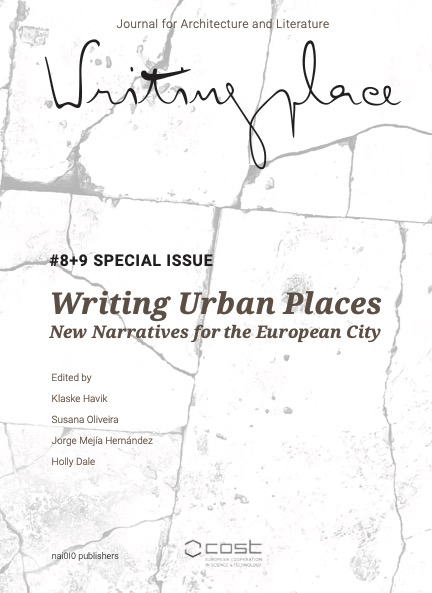Osijek
Mapping the Fictional and the Physical City: The Spatiotemporal and Cultural Identity of Osijek, Croatia
DOI:
https://doi.org/10.7480/writingplace.8-9.7261Abstract
Because of its status as the fourth largest city in Croatia, Osijek is considered an intermediate European city. It is the administrative, economic and cultural centre of eastern Croatia, located on the River Drava, and has a rich, multicultural history that is reflected in its tangible and intangible urban identity. It is famous for its historical Fort Tvrđa and its European Avenue, the most representative street of Austro- Hungarian Secession architecture, but also for its specific sociolects that have been a part of its everyday life. Within the COST Action Writing Urban Places: New Narratives of the European City, Osijek was host to the doctoral training school ‘Urban Chronicles in Empirical Context’ (April 2022) and a short-term scientific mission to investigate the ‘other’ perspectives of the city (August 2022). As events that fostered the training, research, and the networking of international and national young researchers, doctoral candidates and members of academia, they helped to raise awareness of the notion of urban identity of a city as a complex of its physical (geography, architecture, infrastructure) and ephemeral manifestations (literature, culture, history) through time. As such, the events functioned as an outreach, linking the involved participants to their own responsibilities to the city as potential and future policymakers. The following chapter focuses on elements of the city of Osijek as presented through the literary point of view of local authors from the mid-twentieth to the early twenty-first century.
References
Darran Anderson, Imaginary Cities (London: Influx Press, 2019).
Roland Barthes, ‘Semiology and the Urban’, in: Neil Leach (ed.), Rethinking Architecture: A Reader in Cultural Theory (New York: Routledge, 1997), 158-172.
James Clifford Kent, Aesthetics and the Revolutionary City: Real and Imagined Havana (Cham: Palgrave Macmillan, 2019).
Jasna Horvat, Bizarij (Zagreb: Ljevak, 2009).
Henri Lefebvre, The Production of Space (Oxford: Blackwell, 1991).
Džerald Prins (Gerald Prince), Naratološki rečnik (Belgrade: Službeni Glasnik, 2011).
Nenad Rizvanović, Sat pjevanja (Zagreb: Profil, 2009).
Ivana Šojat-Kuči, Unterstadt (Zaprešić: Fraktura, 2009).
Deborah Stevenson, Cities and Urban Cultures (Maidenhead: Open University Press, 2003).
Vilma Vukelić, A Past Rescued from Oblivion (Victoria: FriesenPress, 2020).
Downloads
Published
How to Cite
Issue
Section
License
Copyright (c) 2023 Sonja Novak, Angeliki Sioli

This work is licensed under a Creative Commons Attribution 4.0 International License.



